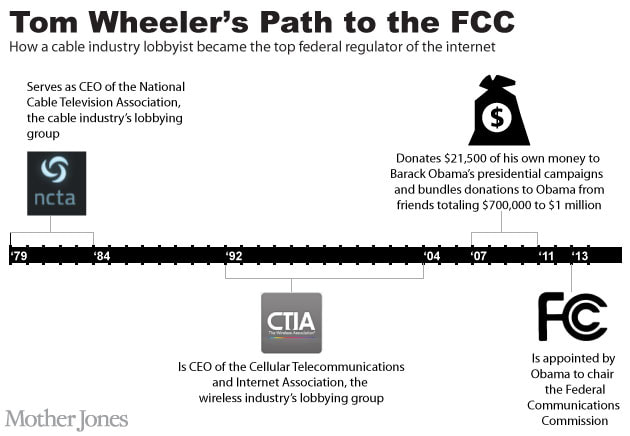|
The Federal Communications Commission (FCC) chairman, Ajit Pai, announced plans to dismantle net neutrality November 21, 2017. Pai said it best, "Under my proposal, the federal government will stop micromanaging the Internet. Instead, the FCC would simply require Internet service providers to be transparent about their practices so that consumers can buy the service plan that’s best for them and entrepreneurs and other small businesses can have the technical information they need to innovate." Net Neutrality: the principle that Internet service providers must treat all data on the Internet the same, and not discriminate or charge differently by user, content, website, platform, application, type of attached equipment, or method of communication. Net neutrality refers to a network, the Internet, in which all data is regulated, or treated equally. Under the principle of net neutrality, Internet services providers (ISPs) are unable to intentionally block, slow down or charge money for specific websites and online content. This means, for instance, that your ISP can't form a special deal with a big company like Netflix or Amazon to let their data pass through the network more quickly or downgrade other sites to an Internet "slow lane" where data passes to users more slowly. At first glance, net neutrality is good for the average Internet user. But there is much more to net neutrality than that, and it starts with Tom Wheeler. Tom Wheeler: The Cable Industry Lobbyist and Top Federal Regulator of the Internet Tom Wheeler, former FCC Chairman, former President of the National Cable and Telecommunications & Internet Association, and former CEO of the Cellular Telecommunications and Internet Association. Wheeler is a lobbyist for the very industry he is supposedly regulating. Now, net neutrality wasn't Wheeler's idea, but was rather proposed under the Obama Administration. The official regulatory plan was published in a 400 page document. The FCC reclassified ISPs as common carriers under Title II of the Federal Communications Act of 1934, as well as Title III of the same Act and Section 706 of the Telecommunications Act of 1996. Now the FCC has the authority to regulate ISPs, even at the rates at which they charge their customers. In Plain English In other words, under net neutrality (more specifically Title II), the Internet is classified by the U.S. government as a public utility. This is a blank check for government control across the board. This means that local, state, and federal fees that apply specifically to the Title II services will create billions of dollars in new charges that will be pushed on to American Internet users. It means that any branch of FCC commissioners will be able to wield powers to enforce the rules over any service on the Internet in any way they see fit. Essentially, the future of the Internet lies in the hands of the FCC under net neutrality. The FCC called it a triumph of “free expression and democratic principles.” It was anything but. It was actually a power grab, creating an Internet communication cartel not unlike the way the banking system works under the Federal Reserve. Goodbye Net Neutrality; Hello Competition Net neutrality closed down market competition by putting government and its corporate backers in charge of deciding who can and cannot play in the market. It erected hurdles for smaller companies to jump over while hugely subsidizing the largest content providers. In effect, with net neutrality, no price reductions in internet service would be seen. Your bills may go up and there would be very little competition. In other words, it was like all government regulation: most of the costs were unseen, and the benefits were concentrated in the hands of the ruling class. Think of the medical industry, which is now entirely owned by a non-competitive cartel of industry insiders. This would be the future of the internet under net neutrality. Goodbye net neutrality! No more government-managed control of the industry. No more price fixing. No more of the largest players using government power to protect their monopoly structure. The end of net neutrality is the best single deregulatory initiative yet taken by the Trump administration. We should take our deregulation where we can get it. ReferencesCorbett, J. (2015). Net “Neutrality,” or, How To Regulate the Internet to Thunderous Applause : The Corbett Report. [online] Corbettreport.com. Available at: https://www.corbettreport.com/net-neutrality-or-how-to-regulate-the-internet-to-thunderous-applause/ [Accessed 7 Dec. 2017].
Tucker, J. (2017). Goodbye Net Neutrality; Hello Competition. [online] Fee.org. Available at: https://fee.org/articles/goodbye-net-neutrality-hello-competition/ [Accessed 7 Dec. 2017].
0 Comments
Leave a Reply. |
This feed contains research, news, information, observations, and ideas at the level of the world.
Archives
May 2024
Categories
All
|


 RSS Feed
RSS Feed

